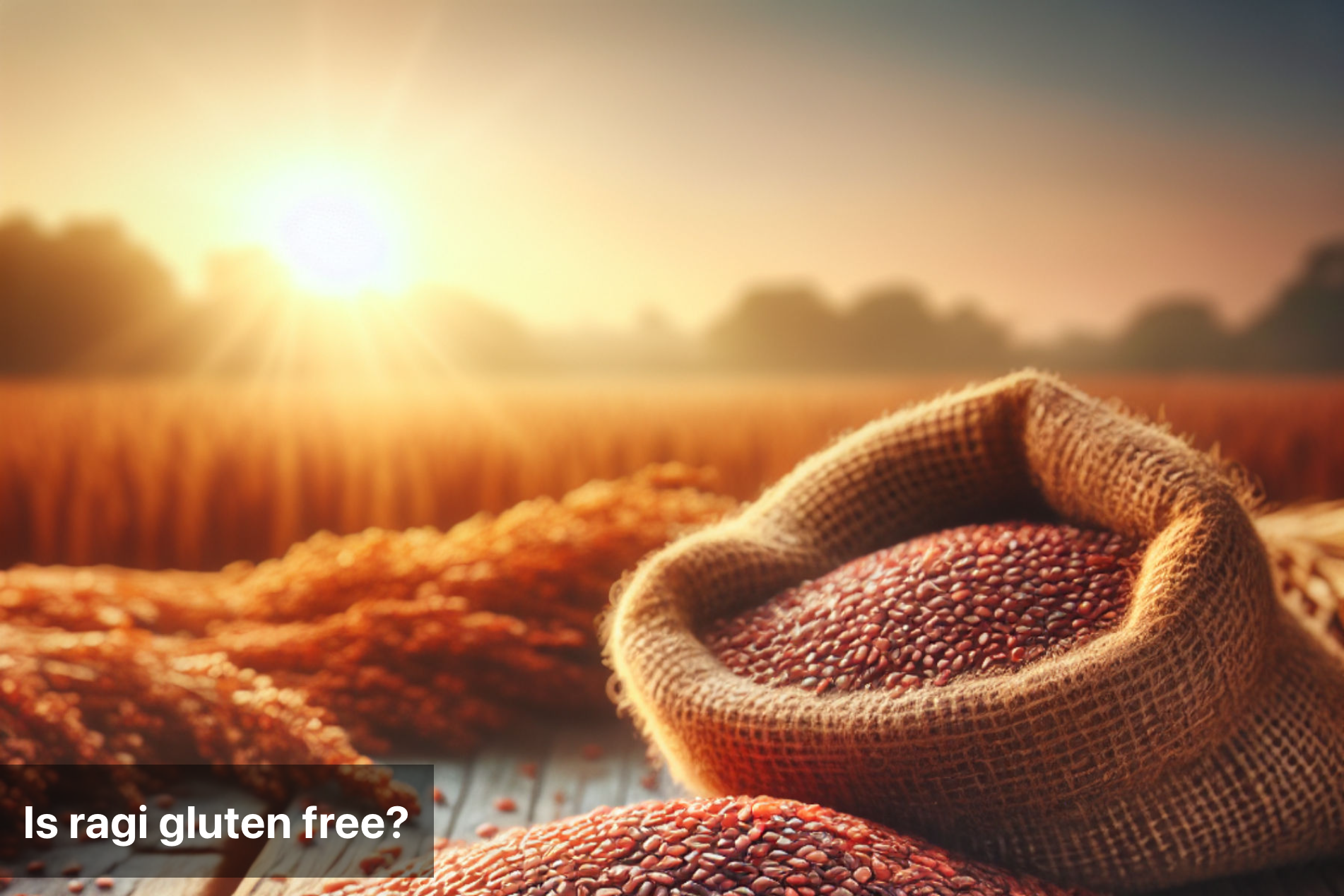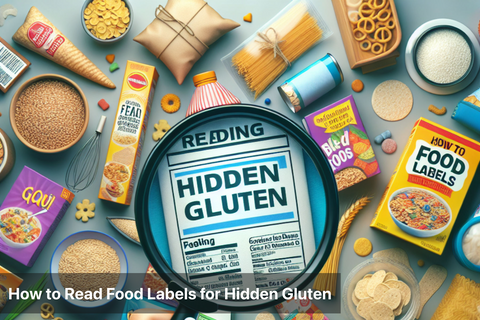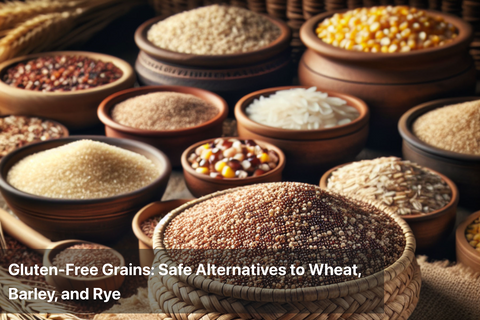
Is Ragi gluten free?
Ragi, also known as finger millet, is a gluten-free grain that has gained popularity for its numerous health benefits. People often wonder, "Is ragi gluten-free?" due to the increasing awareness of gluten intolerance and the rise in gluten-free diets.
Ragi is a versatile grain that is widely consumed in various forms such as flour, porridge, and snacks. It is a staple food in many parts of India and Africa, known for its high nutritional content and health benefits. Rich in fiber, calcium, and iron, ragi is a nutritious addition to any diet.
One of the main reasons people are interested in knowing if ragi is gluten-free is its suitability for individuals with celiac disease or gluten sensitivities. Ragi does not contain gluten naturally, making it a safe and nutritious alternative for those who need to avoid gluten in their diets.
Incorporating ragi into your diet can provide both health benefits and the convenience of a gluten-free grain. Whether you are looking to diversify your diet, boost your nutritional intake, or simply explore new culinary options, ragi is a versatile and wholesome choice.

What is Ragi?
-
Naturally Gluten-Free: Ragi is a naturally gluten-free grain, making it suitable for those with celiac disease or gluten sensitivity.
-
Whole Grain Status: As a whole grain, ragi does not contain gluten proteins, unlike wheat, barley, or rye.
-
Cross-Contamination Risk: While ragi itself is gluten-free, cross-contamination can occur if it's processed in facilities that handle gluten-containing grains. To avoid this, choose certified gluten-free ragi.
-
Label Verification: Always check product labels to confirm that the ragi is processed in a gluten-free environment, especially if you have severe gluten sensitivity.
-
Processing and Packaging: Opt for ragi that is packaged and labeled as gluten-free to ensure no cross-contact during processing.
-
Consult with Suppliers: If you’re unsure, contact the manufacturer to verify that their ragi is processed in a gluten-free facility.
Health Benefits
-
Rich in Calcium: Ragi is an excellent source of calcium, which supports bone health and helps prevent osteoporosis.
-
High in Fiber: The high fiber content aids in digestion, promotes regular bowel movements, and helps manage weight.
-
Good for Blood Sugar Control: Ragi has a low glycemic index, making it beneficial for managing blood sugar levels and supporting diabetes control.
-
Improves Skin Health: The high vitamin content, including B vitamins and antioxidants, supports healthy skin and helps in reducing signs of aging.
-
Helps in Detoxification: Ragi aids in detoxifying the body by supporting liver function and promoting overall wellness.
-
Gluten-Free: Naturally gluten-free, ragi is a suitable grain for those with celiac disease or gluten sensitivity.
How to Incorporate Ragi into a Gluten-Free Diet?
1. Ragi Flour Recipes
-
Ragi Porridge: Cook ragi flour with water or milk to make a nutritious porridge. Add fruits, nuts, or seeds for extra flavor and nutrition.
-
Ragi Pancakes: Use ragi flour as a base for gluten-free pancakes. Combine it with eggs, milk, and baking powder for a tasty breakfast option.
-
Ragi Roti: Make gluten-free flatbreads or rotis using ragi flour. Mix it with water to form a dough and roll out into thin rounds.
2. Baking with Ragi
-
Ragi Bread: Substitute part of the flour in your gluten-free bread recipes with ragi flour for added nutrition.
-
Ragi Muffins and Cookies: Use ragi flour in your gluten-free baking recipes to make muffins or cookies. Combine it with other gluten-free flours for better texture.
3. Ragi Snacks
-
Ragi Chips: Make healthy chips by mixing ragi flour with spices and baking or frying them.
-
Ragi Bars: Prepare energy bars using ragi flour, nuts, seeds, and dried fruits for a nutritious snack.
4. Add to Smoothies
-
Ragi Smoothies: Blend cooked ragi with fruits, yogurt, and a sweetener of your choice to make a filling and nutritious smoothie.
5. Soups and Stews
-
Thickening Agent: Use ragi flour as a thickening agent for soups and stews. It adds a unique flavor and boosts the nutritional content.
6. Ragi Sprouts
-
Sprouted Ragi: Soak and sprout ragi seeds to add to salads, soups, or as a healthy snack.
7. Ragi in Cereal
-
Ragi Cereal: Cook ragi with milk or a dairy-free alternative to make a hearty cereal. Add honey or fruits for sweetness.
8. Combine with Other Gluten-Free Flours
-
Flour Blends: Mix ragi flour with other gluten-free flours like almond flour or coconut flour to improve texture and taste in baked goods.
9. Breakfast Options
-
Ragi Idli/Dosa: Incorporate ragi into traditional South Indian dishes like idli or dosa, which are usually made with rice and urad dal.
10. Consult Recipes
-
Follow Gluten-Free Recipes: Use recipes specifically designed for gluten-free cooking that include ragi to ensure proper texture and taste.

The Gluten-Free Status of Ragi Explained
Beyond its gluten-free nature, Ragi is a nutritional powerhouse. Packed with essential nutrients like calcium, iron, and fiber, it offers a myriad of health benefits that can enhance your overall well-being. From improving digestion to boosting bone health, Ragi proves to be a versatile and wholesome addition to any diet.
As we draw this blog to a close, I encourage you to explore the remarkable potential of Ragi in your culinary endeavors. Whether you incorporate it into your morning porridge, bake it into delectable cookies, or use it in savory dishes, Ragi can elevate your gluten-free dining experience. So, embrace the goodness of Ragi, savor its benefits, and enjoy a delicious journey towards a gluten-free lifestyle. Cheers to good health and happy eating!
This Blog post is an initiative by Lo! Foods, to provide accurate and Nutritionist / Doctor approved information related to Health. Lo! Foods is India's leading brand for Everyday Functional Foods. Foods designed for specific Health conditions or Needs. Lo! Foods also runs India's largest range of Low Carb Healthy Cloud Kitchens, under the brand names of Lo!, ProteinChef, ATH (All Things Healthy) and DiabeSmart.















Leave a comment
Your email address will not be published.